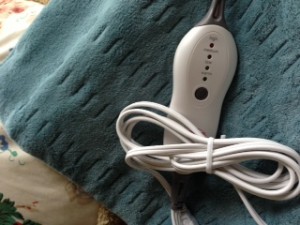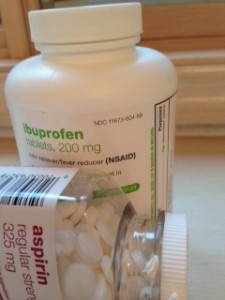Heating Pad After Cosmetic Surgery?
January 27th, 2014
 On the top of the list of our most frequently asked questions is whether the use of a heating pad following cosmetic surgery is safe and effective for pain reduction. While heating pads are common home remedies for a number of musculoskeletal ailments and sports injuries, heating pads are not advised during convalescence from cosmetic surgery. A normal part of any surgical procedure is swelling, bruising and pain. Swelling of the skin and subcutaneous tissues not only reduces sensation, but also makes the skin more susceptible to injury.
On the top of the list of our most frequently asked questions is whether the use of a heating pad following cosmetic surgery is safe and effective for pain reduction. While heating pads are common home remedies for a number of musculoskeletal ailments and sports injuries, heating pads are not advised during convalescence from cosmetic surgery. A normal part of any surgical procedure is swelling, bruising and pain. Swelling of the skin and subcutaneous tissues not only reduces sensation, but also makes the skin more susceptible to injury.
Nothing feels better when you have a localized painful muscle strain or sports injury, than a heating pad applied to the area. It goes a long way to relax a muscle spasm and relieve the pain. But we must exercise caution after cosmetic surgery. Small nerves are damaged during surgery, which leaves you with temporary numbness around the surgical site. So you can imagine what happens when you put a hot heating pad on these areas. It is impossible for you to determine the exact temperature of the heat. Normally when the pad gets too hot for comfort, you remove it. This is natural defense mechanism, which is temporarily lost following surgery. The skin is numb and susceptible to being burnt quite easily.
I have seen terrible scarring when patients have unfortunately chosen to use heating pads following cosmetic surgery. I instruct my patients not to use heating pads because of the risk of skin burns and scarring. This risk can remain present and last for six months after surgery during the recovery process.
Up next: Are ice packs safe to use following cosmetic surgery?
Ibuprofen Before Cosmetic Surgery
January 7th, 2014
Preparation for surgery is essential to make the post-operative course for patients easier and safer. Both pain and risk of complications can be reduced if you follow doctors orders before and after your surgery. This is one of my top recommendations prior to cosmetic surgery on our Do and Don’t list for our patients (other surgeons may have different recommendations). It is important for patients to follow whatever instructions their chosen surgeon provides to them.
Discontinue taking all aspirin and NSIDs, such as Ibuprofen, before surgery. Both of these drugs affect platelet function in the blood. The result is a reduced ability to clot the blood when tissue is divided (cut) in surgery. This can lead to unwanted bleeding and bruising after surgery. These effects last for two weeks. Therefore, I recommend that patients stop taking these medications two weeks before surgery.
Most surgeons give their patients detailed written instructions before surgery. Read All Your Materials. We provide our patients with comprehensive before surgery instructions, after surgery instructions, a list of medications to avoid, and the surgical consent. We ask patients to go over the documents a couple of times and to make sure they understand everything. That is an important recommendation to everyone and if you have questions, call or make an appointment to get all your questions answered. A well-informed patient is a goal that we strive for, because even cosmetic surgery is still surgery.
Surgery is by and large safe. However, complications are always a risk with any surgical procedure. You can help in reducing your post-operative risks by following a few simple recommendations before surgery. Detailed Before and After Nipntuck Instructions for each procedure are included on our site. Please use our search function for our instructions and a Q&A for a specific procedure.

